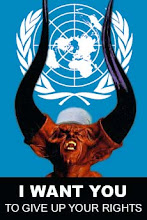Arcadia has evolved into a mythical, almost other worldly province in history, as if it never really existed. Greece’s 2007 fires brought that image back to reality. Arcadia burned, reaffirming another association. Death. Andrew Gough toured Arcadia at the peak of the fires and discovered hope, an ancient library, a magical temple of Apollo and a wolf cult that all seemed strangely connected to Rennes-le-Château.
(Courtesy of Wikipedia)
The significance of the wolf in the story of Rennes-le-Château is curious. For instance, research (Note 9) indicates that the Lupé (derived from the French loup, i.e. wolf) family in the French Pilat, a region alleged to have been visited by Bérenger Saunière, can trace their ancestors back to the Merovingians; the ‘long-haired kings’ so often associated with Rennes-le-Château. Wolves were so revered in Greece that anyone who killed one was required to pay for its funeral. In Egypt, Anubis is portrayed as a wolf-like jackal who is associated with the transfer of souls. Intriguingly, Charon was the ferryman from Greek mythology who wore wolf ears. In Greece, the wolf was associated with the passage to another realm, and according to new research (Note 1) the Grail is exactly that; an otherworldly realm achieved through ritual - not a physical entity.
Another relevant Greek god is Pan, indigenous to Arcadia and interestingly the guardian of shepherds and flocks, and wild mountains. Shepherd of Arcadia indeed! Pan is renowned for teaching the secret of prophecy to Apollo, yet he and his Arcadian mountain people were frowned upon by other communities in Greece. References to Pan in his Arcadian home are numerous, and include (Note 7):
"Summon Pan from the Lycean glades [of Arkadia]."
"You who dwell in the land of the Arkadians, an abode wintry with battering snowstorms, beast-tending Pan."===============================================


















No comments:
Post a Comment